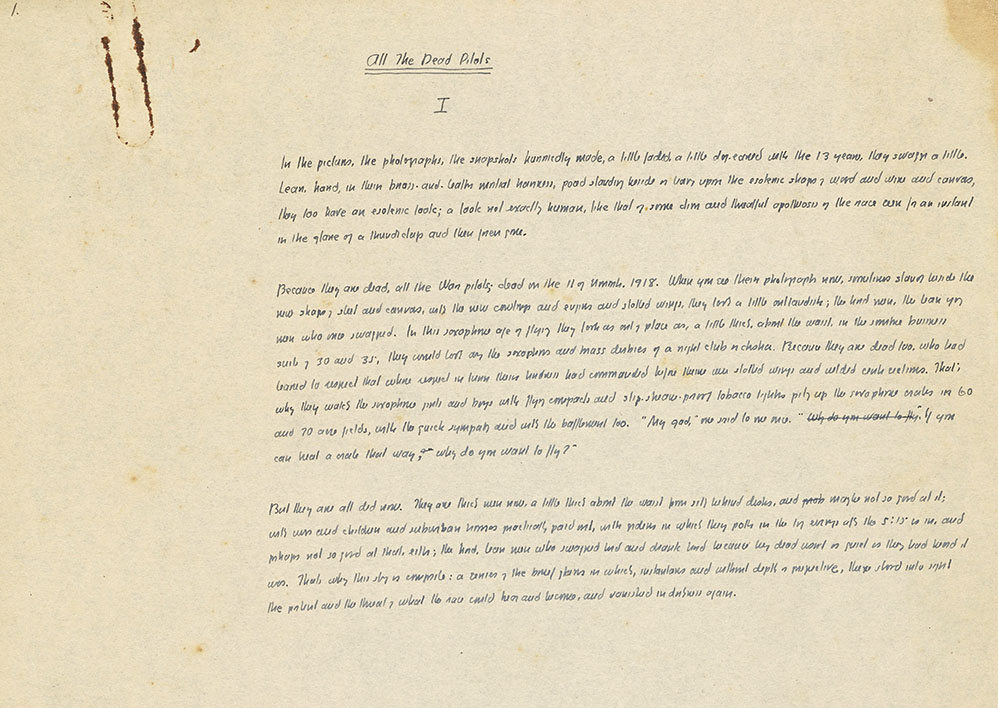TRANSCRIPTION
All The Dead Pilots
In the pictures, the photographs, the snapshots hurriedly made, a little faded, a little dog-eared with the 13 years, they swagger a little.
Lean, hard, in their brass-and-leather martial harness, posed standing beside or leaning upon the esoteric shapes of wood and wire and canvas,
they too have an esoteric look; a look not exactly human, like that of some dim and threatful apotheosis of the race seen for an instant
in the glare of a thunderclap and then forever gone.
Because they are dead, all the War pilots; dead on the 11 of November, 1918. When you see their photographs now, sometimes standing beside the
new shapes of steel and canvas, with the new cowlings and engines and slotted wings, they look a little outlandish; the hard men, the lean young
men who once swaggered. In this saxophone age of flying they look out of place as, a little thick, about the waist, in the sombre business
suits of 30 and 35, they would look among the saxophones and brass derbies of a night club orchestra. Because they are dead too, who had
learned to respect that whose respect in turn their hardness had commended before there were slotted wings and welded center sections. That's
why they watch the saxophone girls and boys with flying compacts and slip-stream-proof tobacco lighters piling up the saxophone crates in 60
and 70 acre fields, with the quick sympathy and with the bafflement too. "My gad," one said to me. "<Why do you want to fly"> If you
can treat a crate that way,<?"> why do you want to fly?"
But they are all dead now. They are thick men now, a little thick about the waist from sitting behind desks, and <prob> maybe not so good at it;
with wives and children and suburban homes practically paid out, with gardens in which they potter in the long evenings after the 5:15 is in, and
perhaps not so good at that, either; the hard, lean men who swaggered hard and drank hard because being dead isn't as quiet as they had heard it
was. Thats why this story is composite: a series of the brief glares in which, instantaneous and without depth or perspective, there stood into sight
the portent and the threat of what the race could bear and become, and vanished in darkness again.
|


